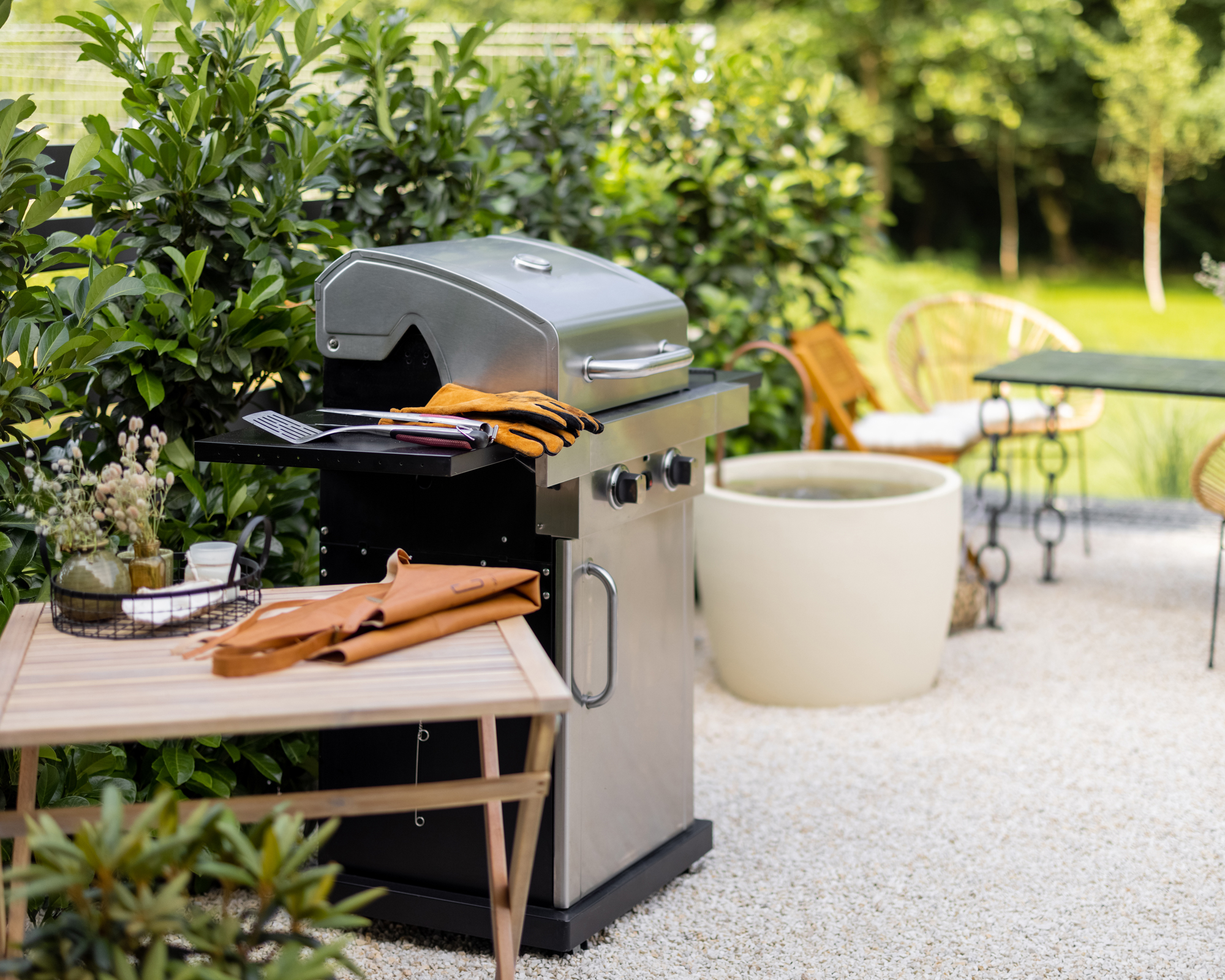

It's time for the big charcoal vs gas grill throwdown... Cooking outside is one of the joys of summer – and perhaps beyond if you have the right grill. And whether you are an old hand with the barbecue, or relatively new to grilling, there are plenty of options to make it easy and enjoyable to make homecooked food in your yard.
The best grill for you though is not just about getting the right size but also the right type. Get a bunch of grilling aficionados in the room and the debate of charcoal vs gas grills will almost certainly come up...
The purists will argue that authentic barbecue food can only be achieved with an open flame, while gas grill lovers will ask why you'd give yourself extra work if you want to cook outside regularly.
To help you decide which is better for your outdoor kitchen, we have listed the pros and cons of each so you know whether to buy a gas or charcoal BBQ.
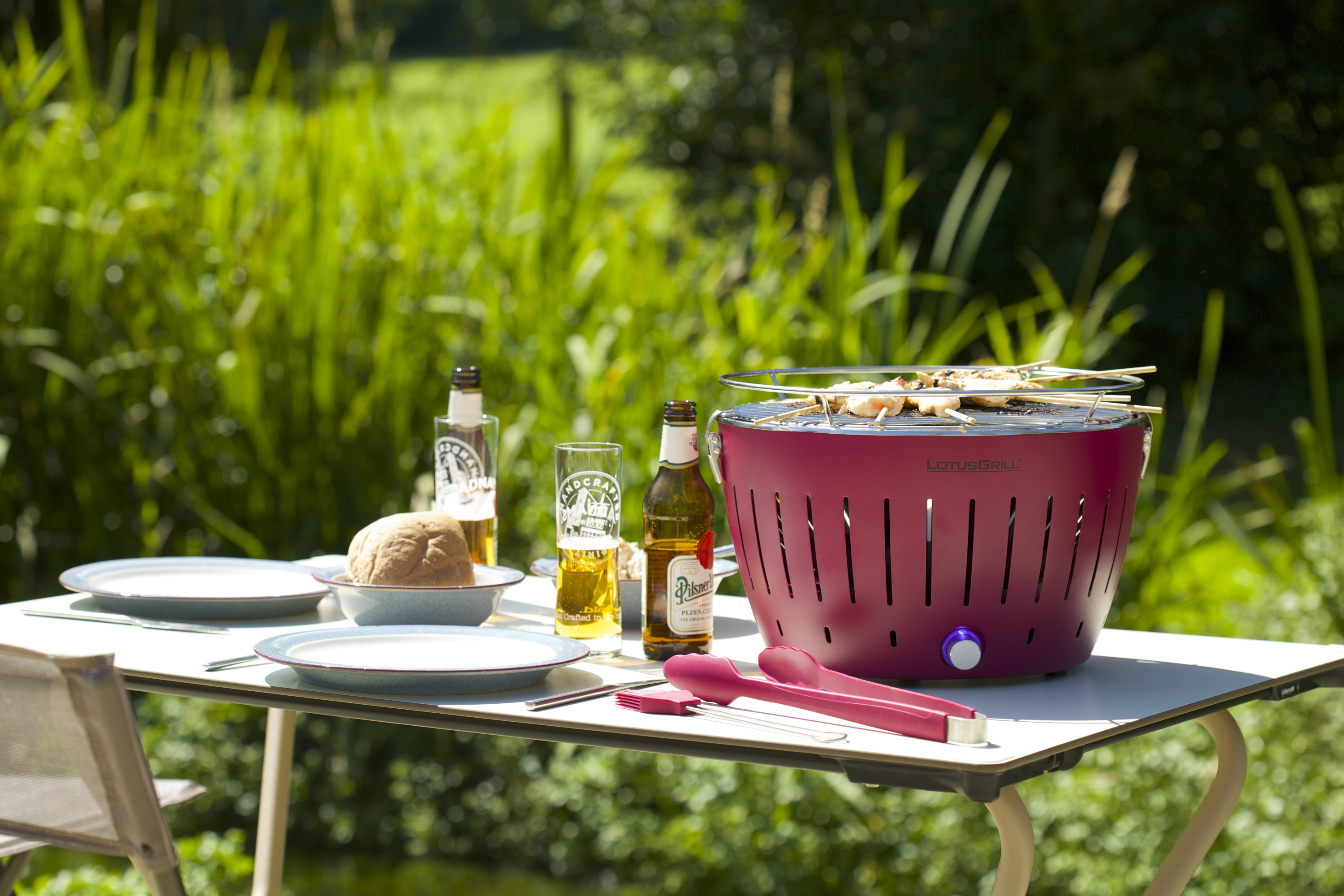
Pros of cooking on charcoal grills
Charcoal barbecues have a number of advantages over gas grills:
Portability
Going camping? You can take a light, portable charcoal barbecue with you. No gas to lug around, and though a big bag of charcoal might be hefty, you can just take what you need or know you will be able to get it fairly easily at your destination.
Affordability
Charcoal barbecues are cheaper to buy than gas or hybrid barbecues. The fuel is also cheaper too, so they are more cost-effective to run.
Heat
They may take longer to heat up but they can get much hotter than gas grills – that may suit what you're planning to cook, perhaps searing steak.
Taste
You can't beat the taste of charcoal-cooked meat. You can get delicious results with both types of grill, but there are reasons why cooking on open flames creates a more intense flavor and different texture. A gas grill predominantly uses conduction to cook. Anything in contact with the grill plates will be heated directly meaning good control over your cook and those pleasing grill lines, but little browning of anything not touching the grill. Meanwhile, a charcoal grill heats via convection, radiant heat from the fire itself, and direct conduction of the hot grill holding the food. This leads to allover browning and that flame-grilled taste.
Cons of cooking on charcoal
Lighting time
Unlike gas barbecues that are ready to cook almost from the word go, charcoal barbecues need time to heat up – and you need to be adept at lighting them, too. A charcoal chimney can speed up this process, but little is more frustrating than struggling to light a fire surrounded by hungry hoards.
Cleaning time
Charcoal barbecues are undoubtedly harder to clean than gas grills. There's not just the grease and food, but all that ash, too. Knowing how to clean a grill is a good start, but the grates of a charcoal grill are more prone to burnt-on food that can be hard to remove.
Poor heat and smoke control
If you're new to barbecuing or you only do it a couple of times a year, you'll know what we mean – smoke in the eyes, burnt burgers... Charcoal barbecues are undoubtedly more difficult to cook on than gas grills. And in some areas, such as apartment complexes, this is enough to lead to a ban on their use.
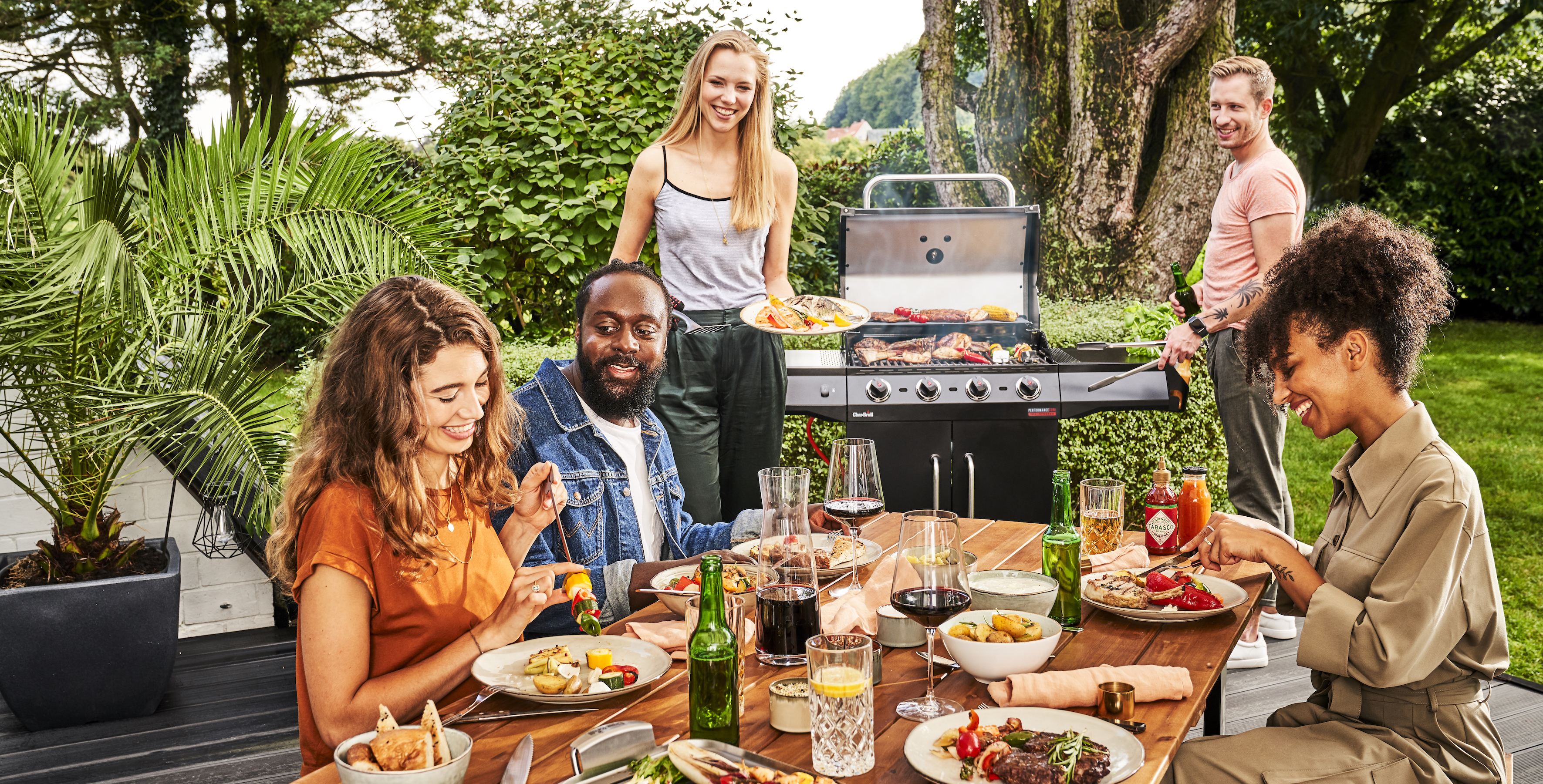
Pros of gas grills
Gas barbecues are an easy-to-cook-with option. Here are the advantages:
Convenience and speed
Connect up the propane, turn the knob, press the ignition... and you're just about ready to cook, give or take 15 minutes to allow the grill to really heat up. They make outdoor cooking on the daily pretty easy and you don't need much effort to learn how to BBQ right on one.
Controllability
Ideally, you should pick a grill that has at least two separate burners that can be controlled individually. Don't be talked into a barbecue because it has an exceptional BTU (British thermal unit) rating; instead, look for a good quality, sturdy grill with heavy metal grates that will better trap and hold heat. Vents are another important feature. Lava rocks, flavored briquettes and metal deflectors all stop the meat's fat from reaching the flames, which means flare ups are less likely than on charcoal BBQs.
Ease of cleaning
No ash? It makes for a tidier clean-up. Many gas grills have a drip drawer below to catch fat. This is easy to remove and clean, meaning your not scrubbing at the whole grill for hours.
Cons of cooking on gas barbecues
You need gas
Well, you need charcoal, too, but it's so much more obvious when that's getting low. Make sure you're topped up on barbecue gas before you start – and look for gas bottles that come with an indicator to tell you when supply is getting low, or a regulator, which keeps an eye on the gas pressure. Gas is not as widely available as charcoal either so keeping well-stocked takes a little more planning.
Portability
Large gas grills that can cook up a storm for a party are great, but their lack of portability is a downside if it starts raining or for when you want to hide it away. So, if you're going for a smaller model, always look out for one that has wheels.
Cost
Gas barbecues are more costly than charcoal, and the cost of the gas adds to this.
Cooking temperature
You can actually reach higher cooking temperatures using charcoal (though it may be harder to get right or maintain). Going back to BTUs mentioned earlier, a high BTU grill is great, but the real cooking temperature depends on something called heat flux.
Simply put, this is the BTUs divided by the surface area of the grill, so what you're looking for is not the highest BTU rating, but the highest BTU to area ratio to get higher heat flux. With charcoal you can force higher heat flux by piling all of your coals in a section of your grill to really up the temperature, your BTUs only being restricted by how much charcoal you have.
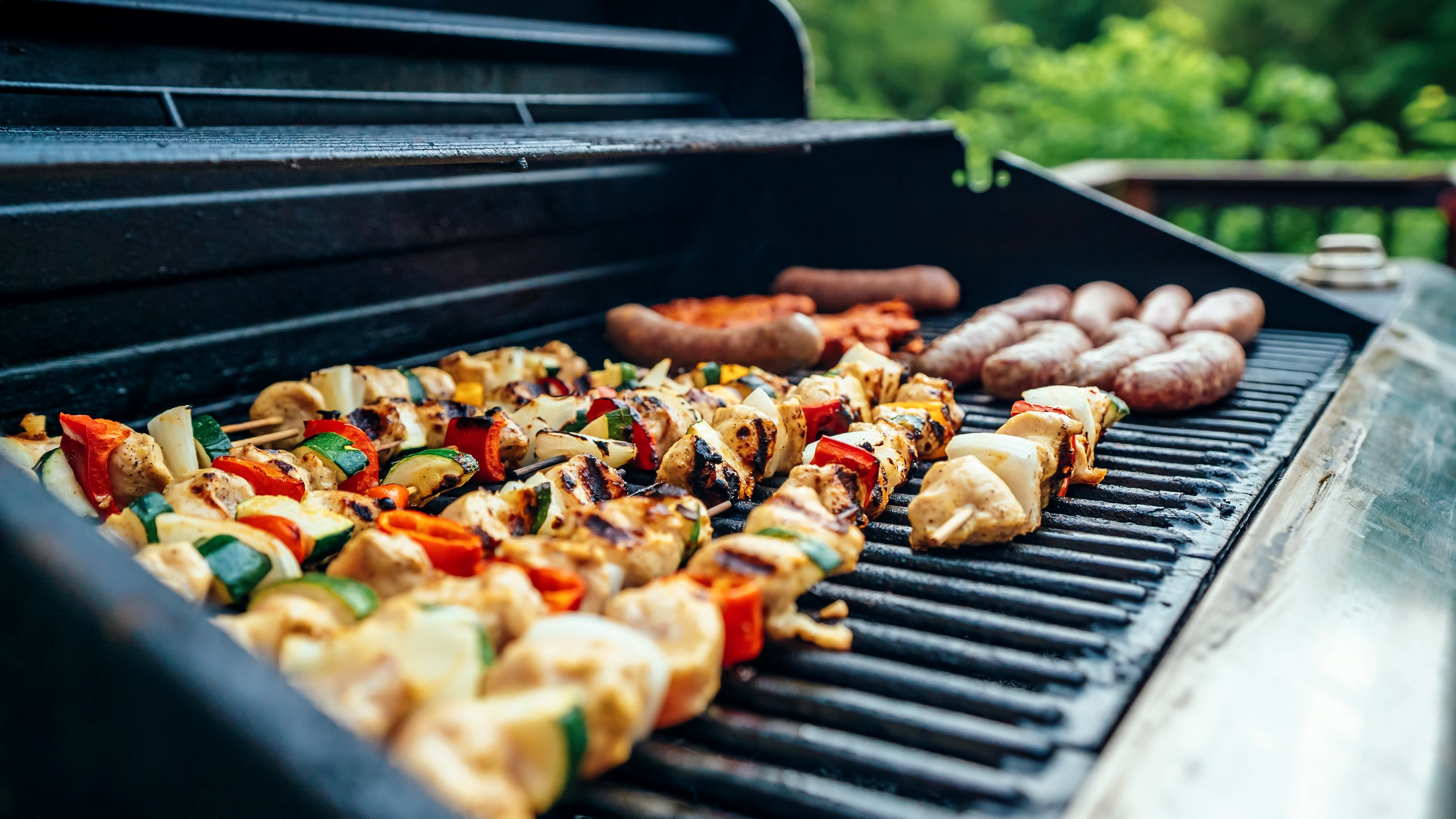
Which is healthier: charcoal or propane grill?
Gas grilling is argued to be healthier because you are less likely to burn the food. While a bit of charring does create a lovely flavor, it also produces heterocyclic amines (HAs) and polycyclic aromatic hydrocarbons (PAHs) which are carcinogens so you definitely don't want to eat them too often.
Does charcoal grilled food taste better than gas grilled?
This depends whether you want that smoky, flame-grilled taste or not. A gas grill will not impart this flavor in the way cooking over fire does, so if this is essential to your barbecuing experience, choose charcoal or a hybrid grill with a charcoal pit or smoker. However, sometimes we just want to enjoy some of our favorite meals cooked outside and the likes of delicate fish or veggies will not stand up to robust smoky tastes in the way meats and oily fish will.
You can also reach higher temperatures with charcoal which is perfect if you want to sear meats but leave them rare inside.
Is gas or charcoal better for the environment?
In short, neither are great. Charcoal releases more carbon dioxide while burning, but propane gas is a fossil fuel so is not renewable. Charcoal can however be sustainably sourced. It is pyrolyzed wood, meaning as long as the wood it is made from is responsibly sourced and heated, the production is more eco-friendly than gas and it is considered renewable.
Gas vs charcoal grill: the verdict
The answer about whether a gas or charcoal grill is better ultimately comes down to lifestyle and how much you want to 'geek out' over grilling. If you need something quick, easy to cook on and that essentially recreates your indoor kitchen for the outdoors, then a gas grill is perfect. You can get it roaring in no time and have reliable cooking results with little prior grilling skill.
Charcoal while being more affordable, is more in tune with that authentic outdoors cooking experience we are innately drawn to. The smell and taste of flame-grilled food is part of its allure and if you are willing to really get your head around tending to the fire and optimizing areas of your grill for higher heat flux, you open yourself to pitmaster-style results.
However, cooking on charcoal is a learning curve and if you have a load of hungry guests waiting to be fed, you're going to want to get some practice in first.
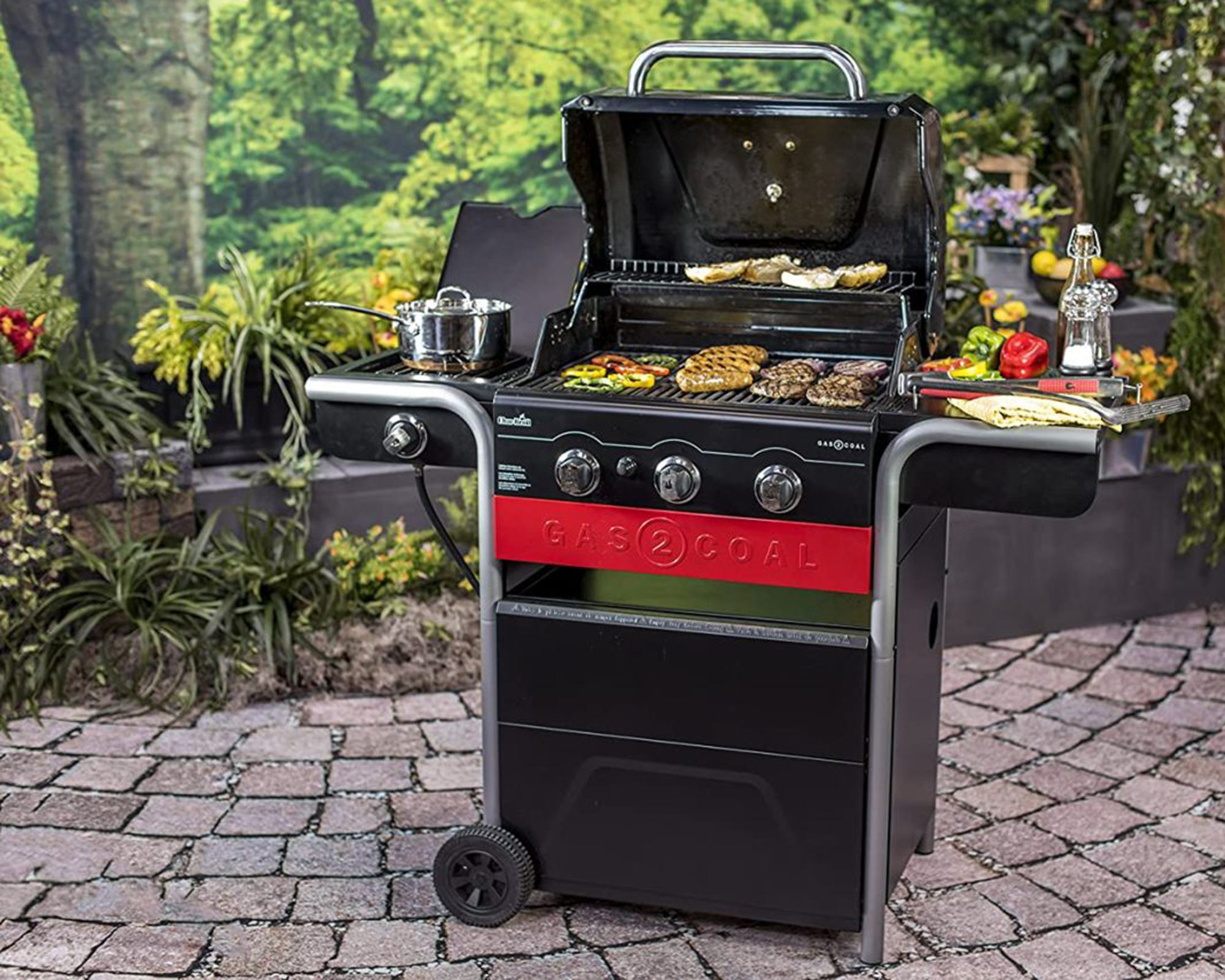
What is a combo grill?
If you still can't decide, let us introduce you to a hybrid – the combination grill. With gas burners, but also a section for coals, you really do get the best of both worlds. You can use the gas side to make sure everything is cooked through, finishing it with a smokey lick of flames on the other side. Or, use the charcoal part for cooking your main elements of the dish, while the gas grill can serve as a stovetop for cooking accompaniments.
They are, of course, some of the most expensive types of grill, but they offer the versatility of use and mean you don't need two grills to match your cooking styles. You can also get combi-grills that include a smoker, giving you even more ways to create tasty food.
Join our newsletter
Get small space home decor ideas, celeb inspiration, DIY tips and more, straight to your inbox!

Lindsey is Editor of Realhomes.com and Editor in Chief for Home Ecommerce at Future. She is here to give you aspirational, yet attainable ideas for your home and works with her team to help you get the best buys, too. She has written about homes and interiors for the best part of a decade for brands including Homes & Gardens, Ideal Home and Gardeningetc and isn't afraid to take the inspiration she finds at work into her own space – a Victorian terrace which she has been (slowly) remodelling for the last eight years. She is happiest sipping a cup of tea with a cat on her lap (if only she had a cat).
-
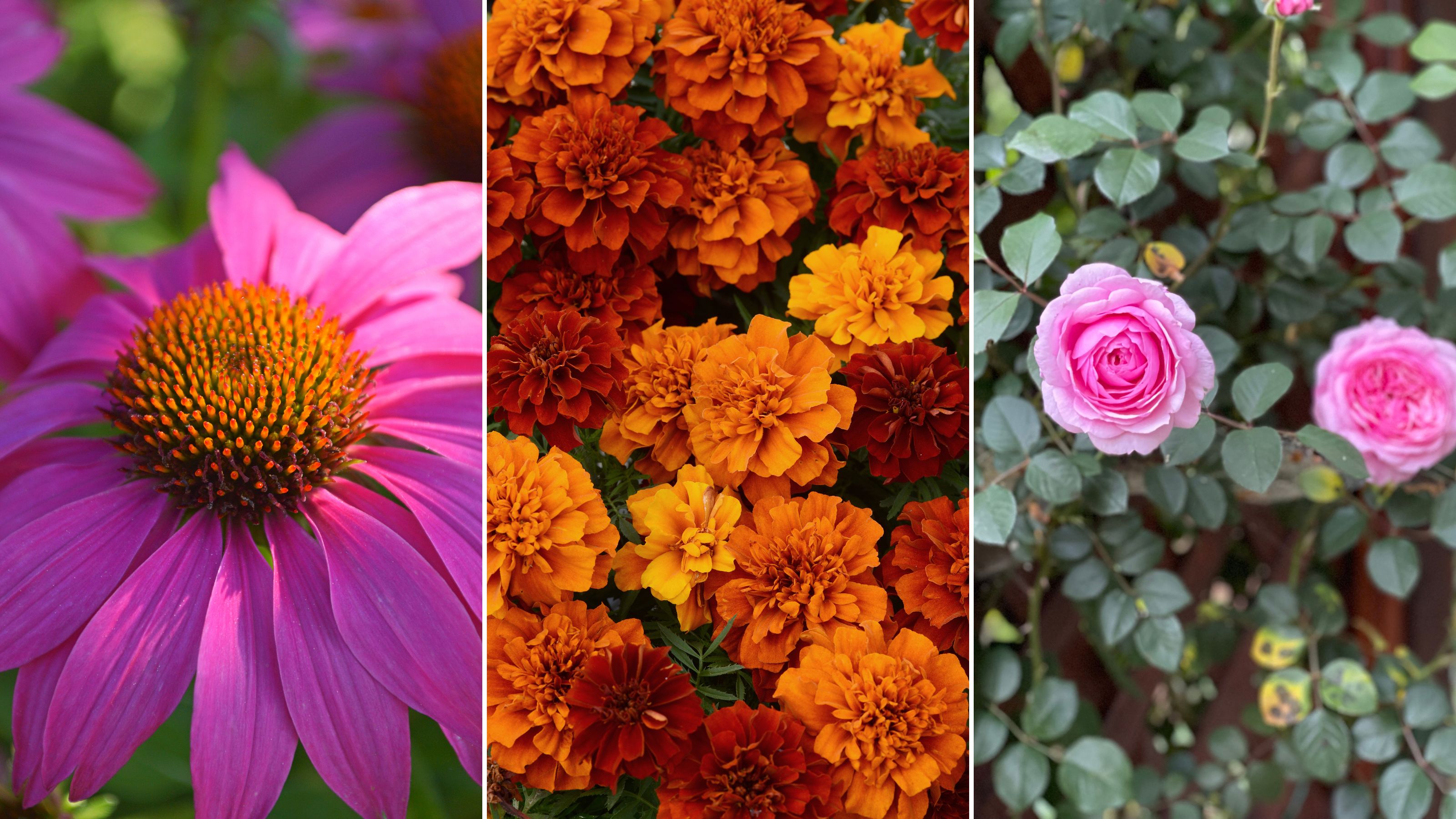 The 7 flowers to plant in August, according to gardening gurus
The 7 flowers to plant in August, according to gardening gurusKnowing what flowers to plant in August isn't always so clear-cut. But that's why we called in help from pro planters — here's what they said to pot.
By Becks Shepherd Published
-
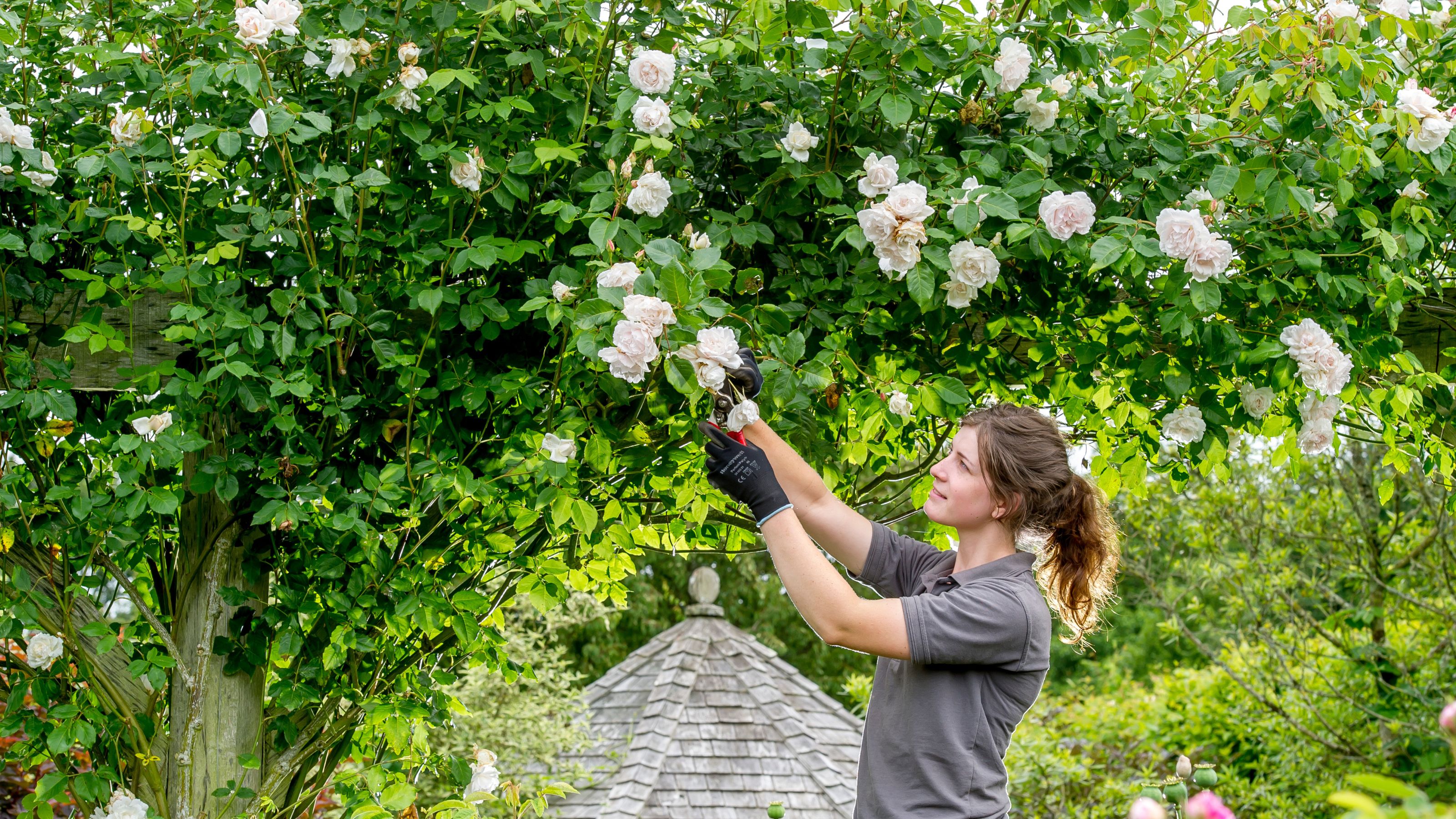 The 7 plants to prune in August — and the 2 pieces of greenery you shouldn't touch
The 7 plants to prune in August — and the 2 pieces of greenery you shouldn't touchWondering what plants to prune in August? We asked a gardening expert for their top tips plus info on what pieces of greenery to avoid pruning this month
By Becks Shepherd Published
-
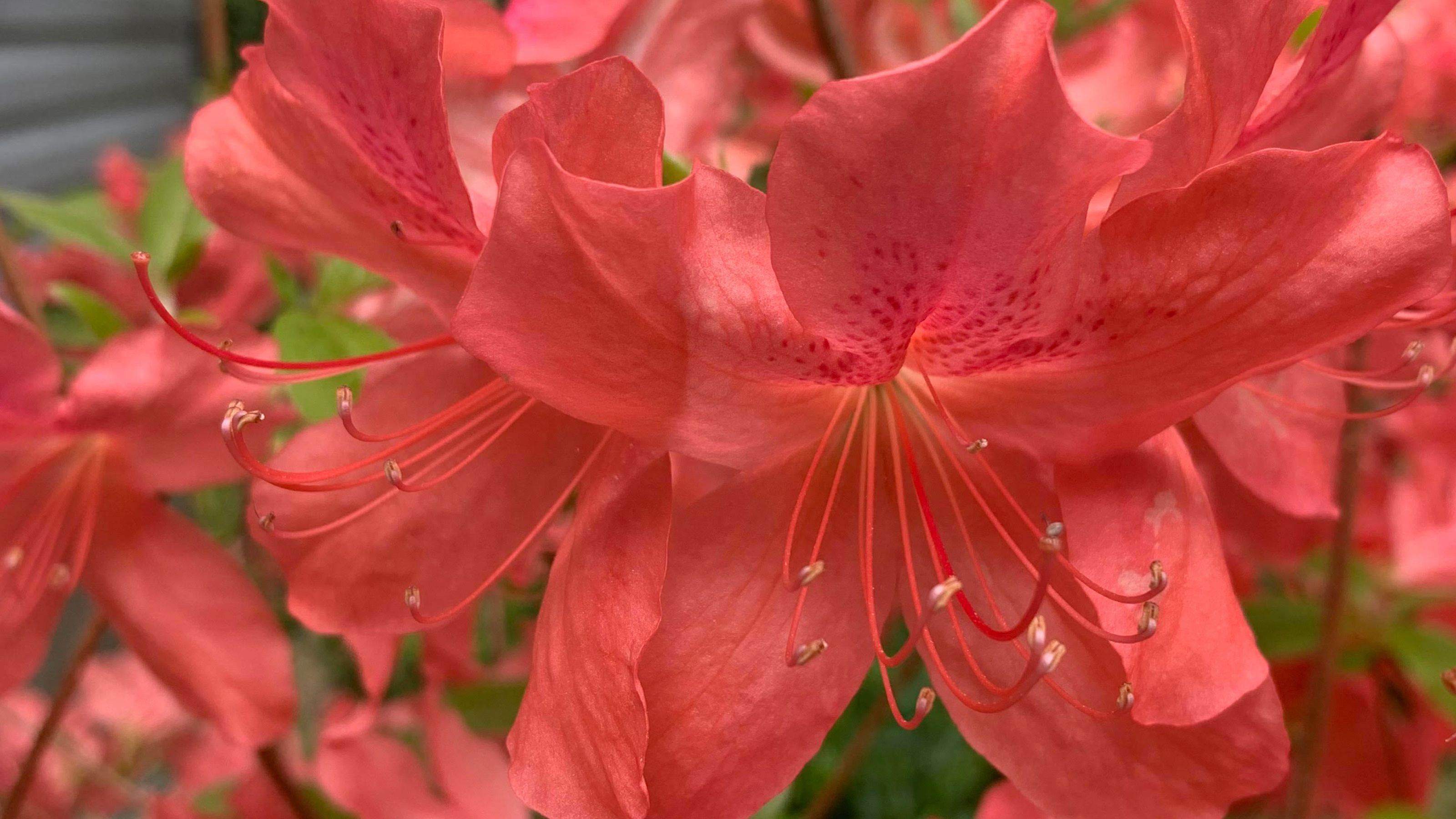 Do you need to deadhead azaleas? Top tips for pruning these flowering shrubs
Do you need to deadhead azaleas? Top tips for pruning these flowering shrubsWondering whether you need to deadhead azaleas? We asked a gardening expert for their top tips for looking after these blooms
By Becks Shepherd Published
-
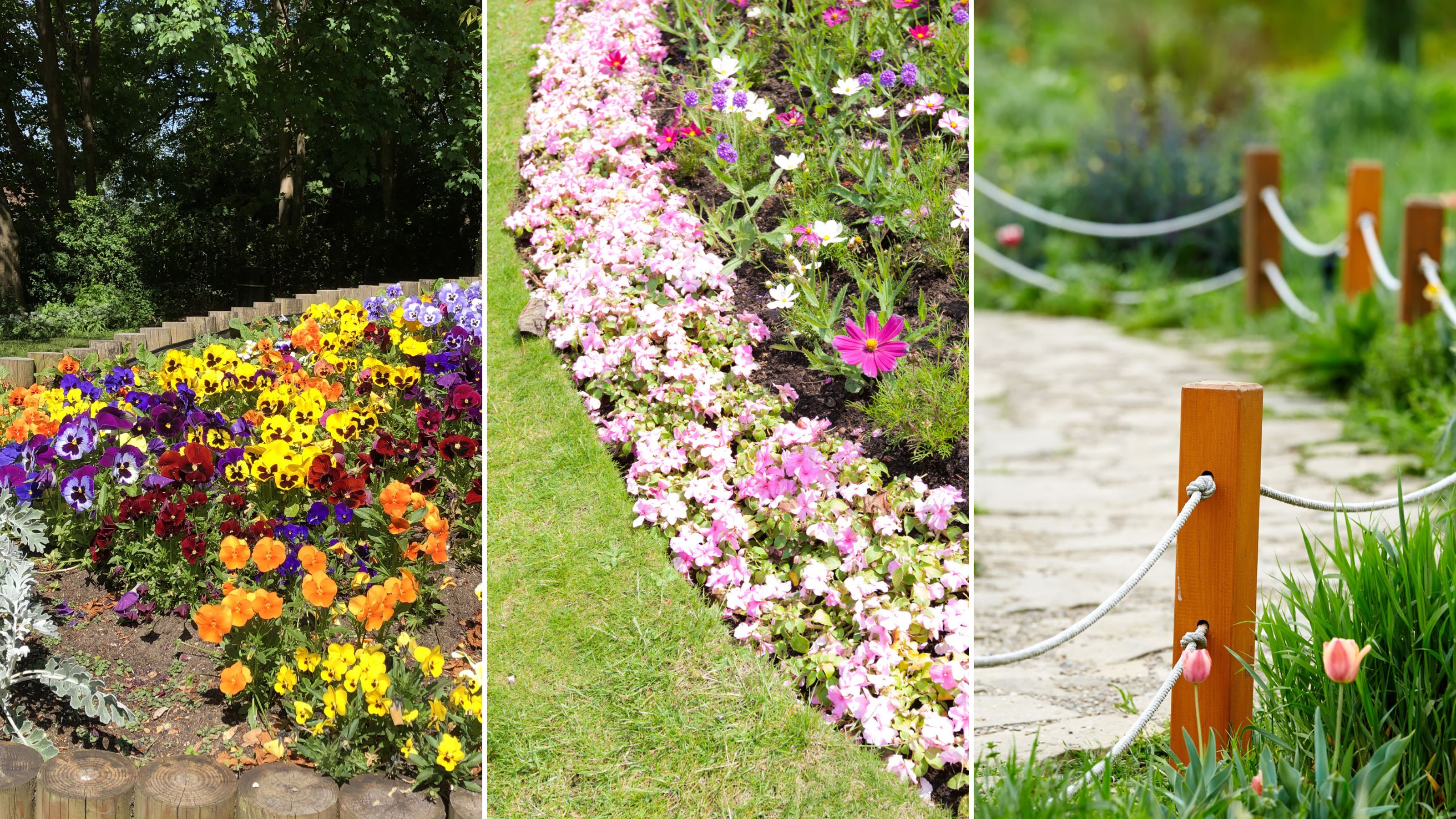 14 lawn edging ideas that will add definition and style to your backyard
14 lawn edging ideas that will add definition and style to your backyardWant to neaten up your lawn with lawn edging ideas? From fresh flowers to laidback bricks, we've scouted out materials and styles that look brilliant
By Eve Smallman Published
-
 Which houseplants are toxic to dogs? Vet experts pinpoint problem plants and solutions
Which houseplants are toxic to dogs? Vet experts pinpoint problem plants and solutionsWondering Which houseplants are toxic to dogs? We spoke to vets about the problematic leafy greens, what they trigger in dogs, and how to find a solution
By Danielle Valente Published
-
 How to attract hummingbirds to your backyard, according to ornithologists
How to attract hummingbirds to your backyard, according to ornithologistsTrying to figure out How to attract hummingbirds to your backyard? These ornithologist-backed tips will guarantee you visitors in no time
By Danielle Valente Published
-
 Does hydrangea bloom every year? Pros spill the dirt on the "garden favorite" and when to expect it
Does hydrangea bloom every year? Pros spill the dirt on the "garden favorite" and when to expect itWondering, "Does hydrangea bloom every year"? We asked the pros all about the garden favorite and how often to expect them — here's the dirt.
By Danielle Valente Published
-
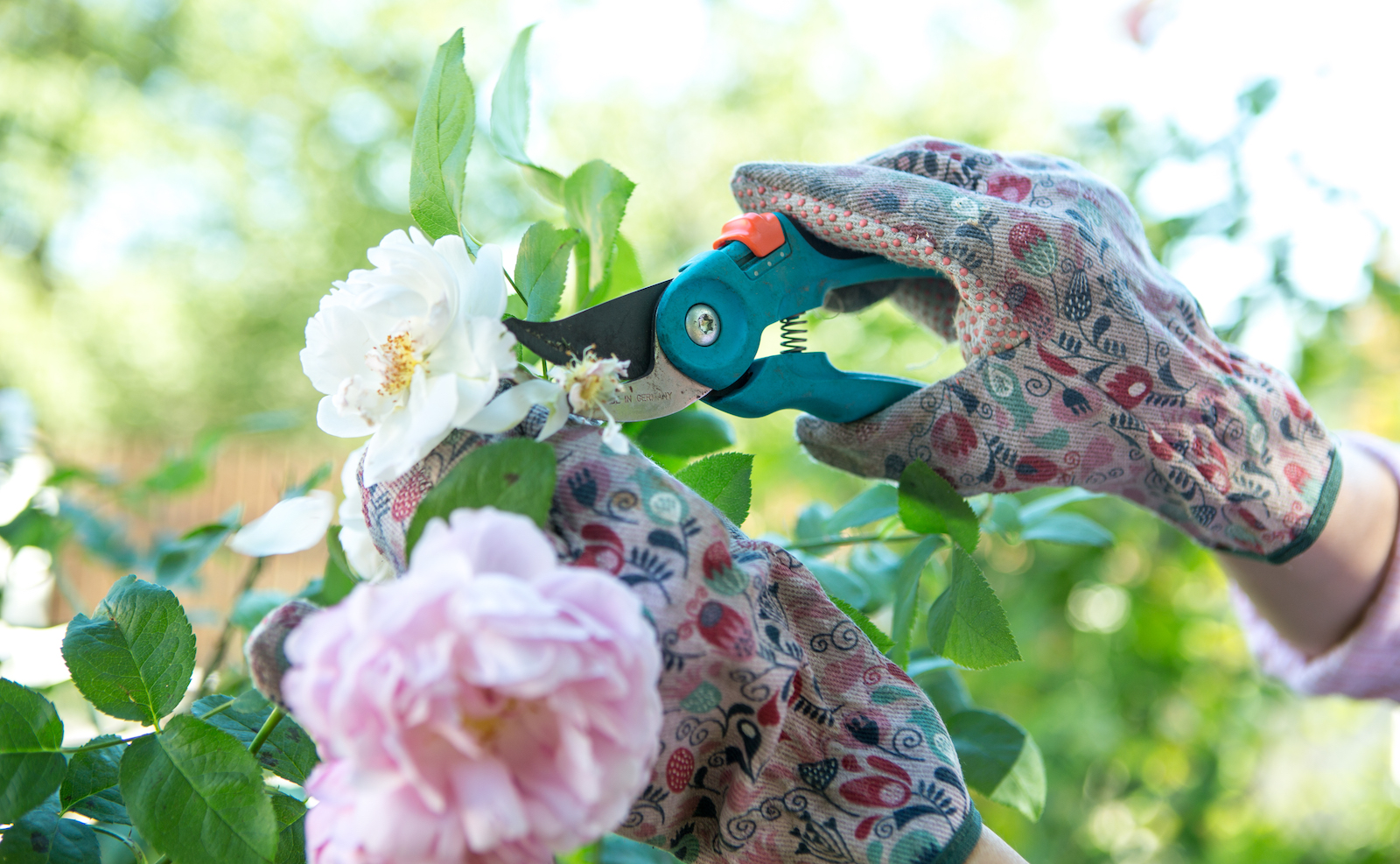 What to prune in spring — experts reveal how to get a lush, full garden
What to prune in spring — experts reveal how to get a lush, full gardenCurious what to prune in spring? We asked gardening experts for their top tips for a luscious, thriving garden
By Danielle Valente Published